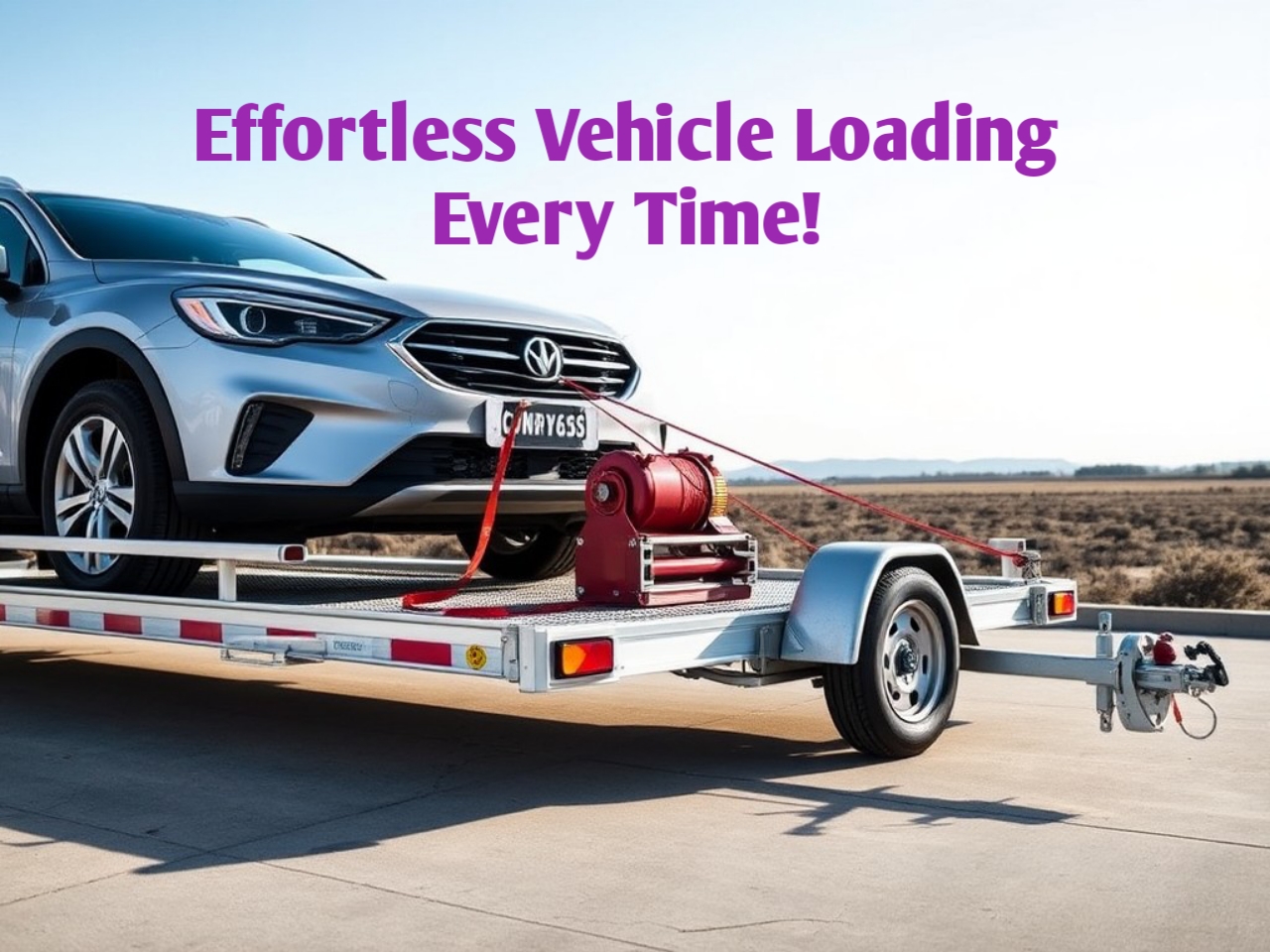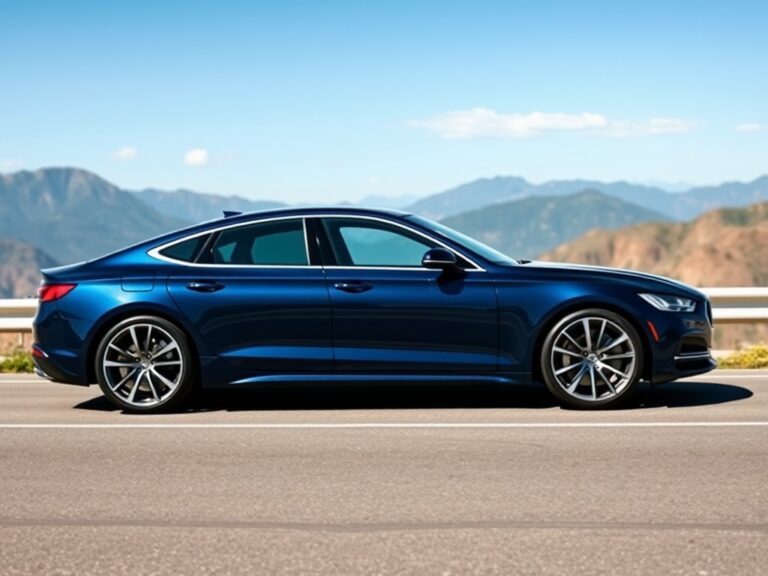Why You Need a Car Trailer with Winch for Smooth Vehicle Loading
When it comes to transporting vehicles, whether for professional, recreational, or personal purposes, efficiency, and safety are paramount. A car trailer equipped with a winch provides a seamless way to load and unload cars, especially in challenging scenarios like non-functional vehicles or sloping surfaces. This article delves into the significance of owning a car trailer with a winch, exploring its functionality, advantages, types, and tips for effective usage. By the end, you’ll understand how this equipment can enhance your vehicle transport experience and ensure the security of your load.
The Basics: What Is a Car Trailer with a Winch?
A car trailer with a winch is a trailer specifically designed to transport vehicles, equipped with a winch system that helps in pulling a vehicle onto the trailer bed. The winch is typically mounted at the front end of the trailer and is essential for scenarios where the car may not be operable or when loading requires additional control. This setup is valuable for vehicle recovery, transporting cars that are not roadworthy, and providing an efficient solution for loading heavy loads without straining or requiring excessive manpower.
The winch itself functions by wrapping a cable or synthetic rope around a drum, using mechanical power to pull a vehicle onto the trailer. The strength and type of winch depend on the weight of the vehicle to be loaded and the specific demands of the user, making it essential to choose a suitable winch based on your needs.
Advantages of Using a Car Trailer with Winch
A car trailer with a winch offers multiple advantages that simplify the loading process while enhancing safety and control. Here are some of the major benefits:
- Efficient Loading of Inoperable Vehicles
Cars with mechanical issues, flat tires, or other impairments can be challenging to move without assistance. A winch enables easy loading even when the vehicle cannot be driven, making it ideal for towing non-functional vehicles or those without power. - Enhanced Safety for Users
Without a winch, users may have to manually push or use physical force to load vehicles, increasing the risk of injury. A winch eliminates this risk, allowing for safer and more efficient loading, especially for single operators or small teams. - Reduced Physical Effort
The winch takes on the heavy lifting, removing the need for physical strength to load a vehicle. This convenience is essential for frequent users and professionals who want to minimize strain and labor. - Secure Vehicle Positioning
A winch allows for precise control, so you can position the vehicle accurately on the trailer. This reduces the risk of misalignment, which could lead to accidents during transit. - Versatile for Various Vehicle Types
Whether transporting sedans, SUVs, off-road vehicles, or even ATVs, a winch-equipped trailer can handle a variety of vehicles, enhancing its versatility for different transport needs.
Types of Winches Suitable for Car Trailers
When selecting a winch for your car trailer, understanding the various types available is essential to making an informed decision. The three most common types are:
- Electric Winches
Electric winches are popular due to their ease of use and affordability. Powered by an electric motor, they are ideal for lightweight to medium-duty loads. Electric winches are also straightforward to install and are compatible with most vehicle trailers. - Hydraulic Winches
Hydraulic winches use fluid pressure to operate and are generally more powerful than electric winches, making them suitable for heavier vehicles. They offer consistent performance under load, ideal for long-term use and frequent loading. - Manual Winches
Manual winches, while labor-intensive, are cost-effective and can work without an external power source. These are typically suited for smaller trailers or lightweight vehicles, as the manual operation may be impractical for heavy cars.
Each winch type has unique strengths, making it essential to choose one based on the weight and type of vehicles you plan to load regularly.
Key Factors to Consider When Choosing a Winch for Your Trailer
Choosing the right winch for your car trailer is essential for efficient operation. Some critical factors to consider include:
- Load Capacity
The winch’s load capacity should exceed the weight of the heaviest vehicle you plan to transport. A good rule of thumb is to select a winch with a load capacity 1.5 times the vehicle’s weight to ensure safe loading. - Rope Type: Steel vs. Synthetic
Winch ropes are usually available in steel or synthetic material. Steel ropes are durable and more resistant to abrasion, while synthetic ropes are lightweight and safer for users, making them popular for recreational use. - Motor Power and Speed
For electric winches, consider the motor power and line speed. A higher motor rating and faster line speed allow quicker loading, saving time and effort, especially for heavier vehicles. - Control Options
Winches offer different control options, including remote control and manual switch. Remote-controlled winches allow you to operate from a distance, enhancing safety during the loading process.
Practical Uses of a Car Trailer with Winch in Different Scenarios
A car trailer with a winch proves beneficial in a variety of scenarios, providing unmatched utility in the following cases:
- Roadside Assistance and Vehicle Recovery
For towing services, a winch is a crucial asset when rescuing broken-down vehicles. Whether the car has mechanical issues or is in a difficult-to-reach spot, a winch allows operators to safely load it onto the trailer without risking damage. - Transporting Classic and Collector Cars
Classic and luxury vehicles are often transported for events or maintenance. A winch-equipped trailer provides a gentle and controlled loading experience, protecting valuable vehicles from damage during transport. - Recreational Off-Roading and ATV Transport
Off-road enthusiasts who frequently transport ATVs or dirt bikes find winch-equipped trailers indispensable, as they provide smooth loading after adventurous terrain excursions. - Heavy Equipment and Machinery Loading
Beyond cars, a trailer with a winch can also handle loading heavy equipment and small machinery, making it versatile for construction and agricultural needs.
Maintenance Tips to Extend the Life of Your Winch
Proper maintenance of your winch ensures its longevity and reliability. Regular checks are essential to keep it functioning optimally:
- Inspect the Rope or Cable
Check for fraying, wear, or rust, especially on steel cables, as this can lead to breakage under load. - Lubricate Moving Parts
Ensure all moving parts, especially in hydraulic winches, are lubricated to reduce friction and prevent wear over time. - Test the Controls
Periodically test the control systems to confirm that the remote and manual controls are functioning smoothly. - Check the Mounting Hardware
The winch should be securely mounted on the trailer. Regularly inspect the bolts and mounts to prevent loosening due to vibrations during transit.
Safety Tips for Operating a Car Trailer with a Winch
Operating a car trailer with a winch involves safety measures to avoid injury and ensure successful loading. Here are some essential safety tips:
- Wear Gloves When Handling the Rope
Gloves protect against cuts and abrasions, particularly when handling steel cables with sharp burrs or splinters. - Stand Clear of the Load Line
Avoid standing in line with the cable to prevent injury in case of a break. Keep a safe distance and ensure no bystanders are close to the cable. - Engage the Emergency Brake on the Vehicle
Once the vehicle is loaded onto the trailer, engage its emergency brake to prevent movement during transit. - Use Chocks and Tie-Downs for Extra Security
Wheel chocks and tie-downs provide extra stability, preventing the vehicle from moving on the trailer bed during travel.
Frequently Asked Questions (FAQs) About Car Trailers with Winches
1. Can I install a winch on an existing trailer?
Yes, many car trailers can be retrofitted with winches. Be sure to choose a winch that suits the trailer’s capacity and intended vehicle weight.
2. How do I choose the right winch for my needs?
Consider factors like vehicle weight, frequency of use, and winch type. For heavier or frequent usage, hydraulic or high-powered electric winches are ideal.
3. Are synthetic ropes better than steel ropes for winches?
Synthetic ropes are lighter and safer but require more maintenance. Steel ropes are durable but heavier and more challenging to handle. The choice depends on usage preferences and specific loading needs.
4. What maintenance does a winch require?
Regular inspection, lubrication, and ensuring the cable is free of frays or kinks are vital. Maintaining the battery (for electric winches) or fluid levels (for hydraulic winches) is also important.
Conclusion: Why a Car Trailer with Winch is Worth the Investment
A car trailer with a winch offers unparalleled benefits for anyone needing to transport vehicles or heavy equipment. From enhancing safety and reducing physical strain to ensuring accurate vehicle positioning, this equipment brings ease and efficiency to vehicle transportation. Whether for roadside recovery, recreational use, or heavy-duty towing, the added control and security provided by a winch make it a valuable investment. By choosing the right winch and following proper maintenance and safety protocols, you can maximize the utility and lifespan of your car trailer with a winch, making every loading task smoother and safer.
Read Also Our This Post: Top 10 Best Car Freshies for a Long-Lasting Fresh Ride

Kamran Khatri is a versatile writer and editor at ExpressZone.co.uk, bringing fresh perspectives and insightful commentary across a wide range of topics. With a passion for exploring diverse subjects—from technology, business, and finance to lifestyle, travel, and the arts—Kamran aims to inform, inspire, and engage readers through well-researched articles and thought-provoking content.
His work spans multiple categories including health, education, pets, entertainment, real estate, and sustainability, reflecting his commitment to delivering knowledge that connects with everyday life. Whether breaking down the latest trends, sharing practical tips, or highlighting cultural insights, Kamran’s writing combines clarity with creativity.
When he’s not crafting stories for ExpressZone.co.uk, Kamran enjoys keeping up with global developments, exploring innovative ideas, and connecting with readers who share his curiosity about the world.







